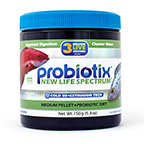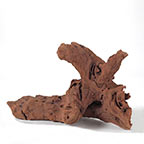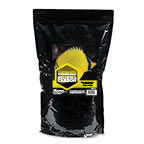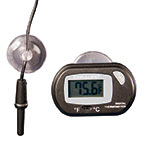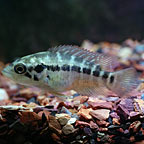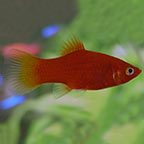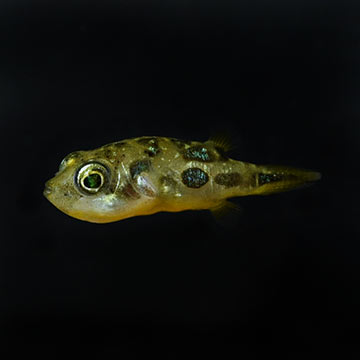
Additional locales and sizes may be available!
Additional locales and sizes may be available! Email me when availableQuick Stats
What do these Quick Stats mean? Click here for more information
What do these Quick Stats mean? Click here for more information
Overview
The ideal set up for the Indian Dwarf Puffer is a planted aquarium of at least 30 gallons with plenty of hiding places. Unlike the other puffers in this family, the Indian Dwarf requires freshwater with no salt content. The males are very territorial and only one per aquarium is suggested unless it is a large system.
The Indian Dwarf Puffer should be fed crustacean foods such as brine shrimp, krill, mollusks and earthworms.
Approximate Purchase Size: 1/2" to 1"
Supplies You May Be Interested In
Customer Testimonials
I have four Indian Dwarf Puffers in my semi-planted 20-gallon long tank, with four Black Skirt Tetras. The puffers are the coolest fish. They swim in a unique way, and they are NOT aggressive (of course, mine are all females). I added three Otocinclus Catfish to eat tank algae, and the Dwarf Puffers watch them eat, but do not bother them at all. I also added a Bumblebee Goby (because he needed a home). The goby may be a bad idea, though; he is very aggressive, and I worry that he will nip the puffers' fins (I saw him chase the otos and the puffers). The tetras are much larger than the puffers and are also quite aggressive. But the puffers WILL stand their ground when confronted. After a second, the tetras always back down.



